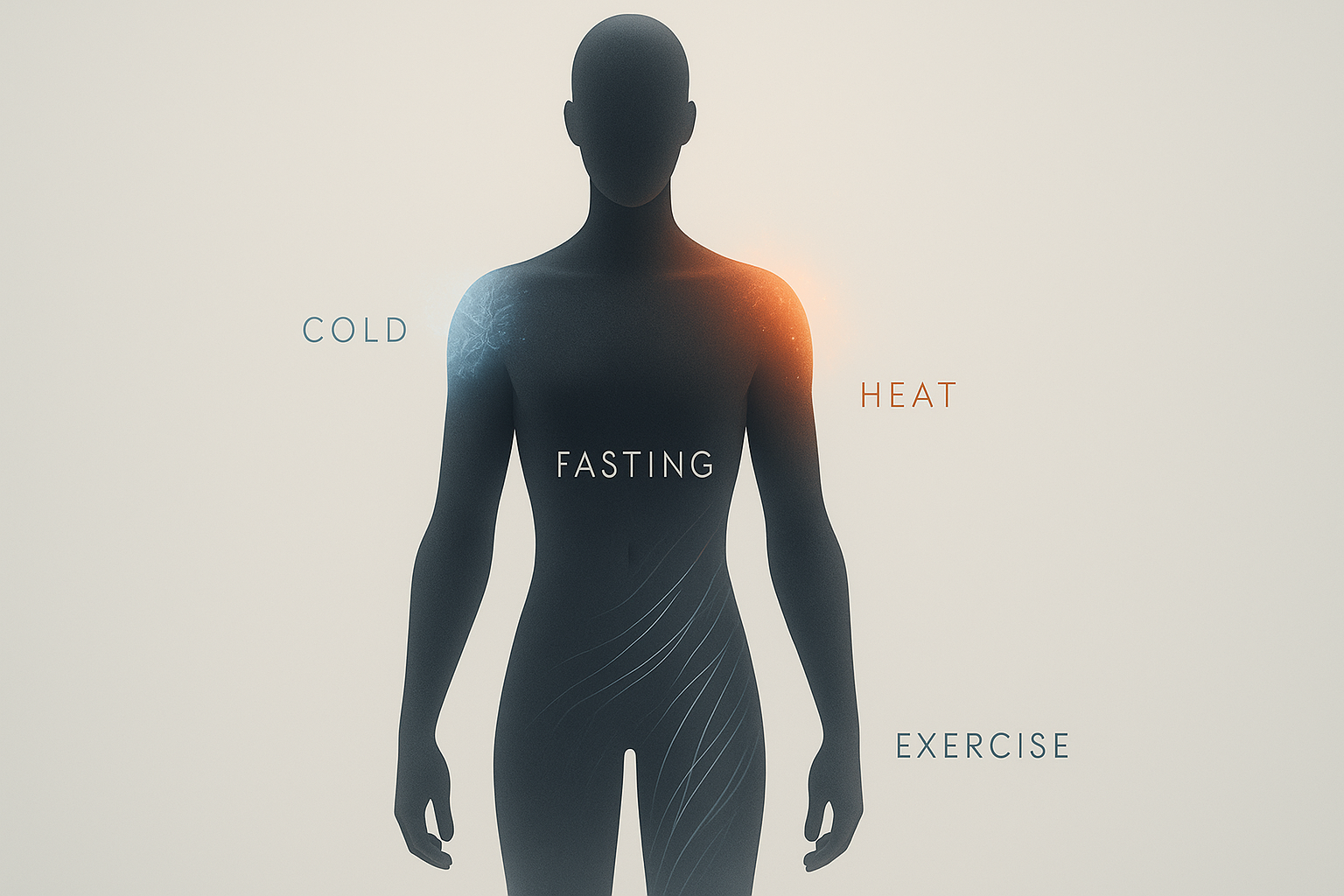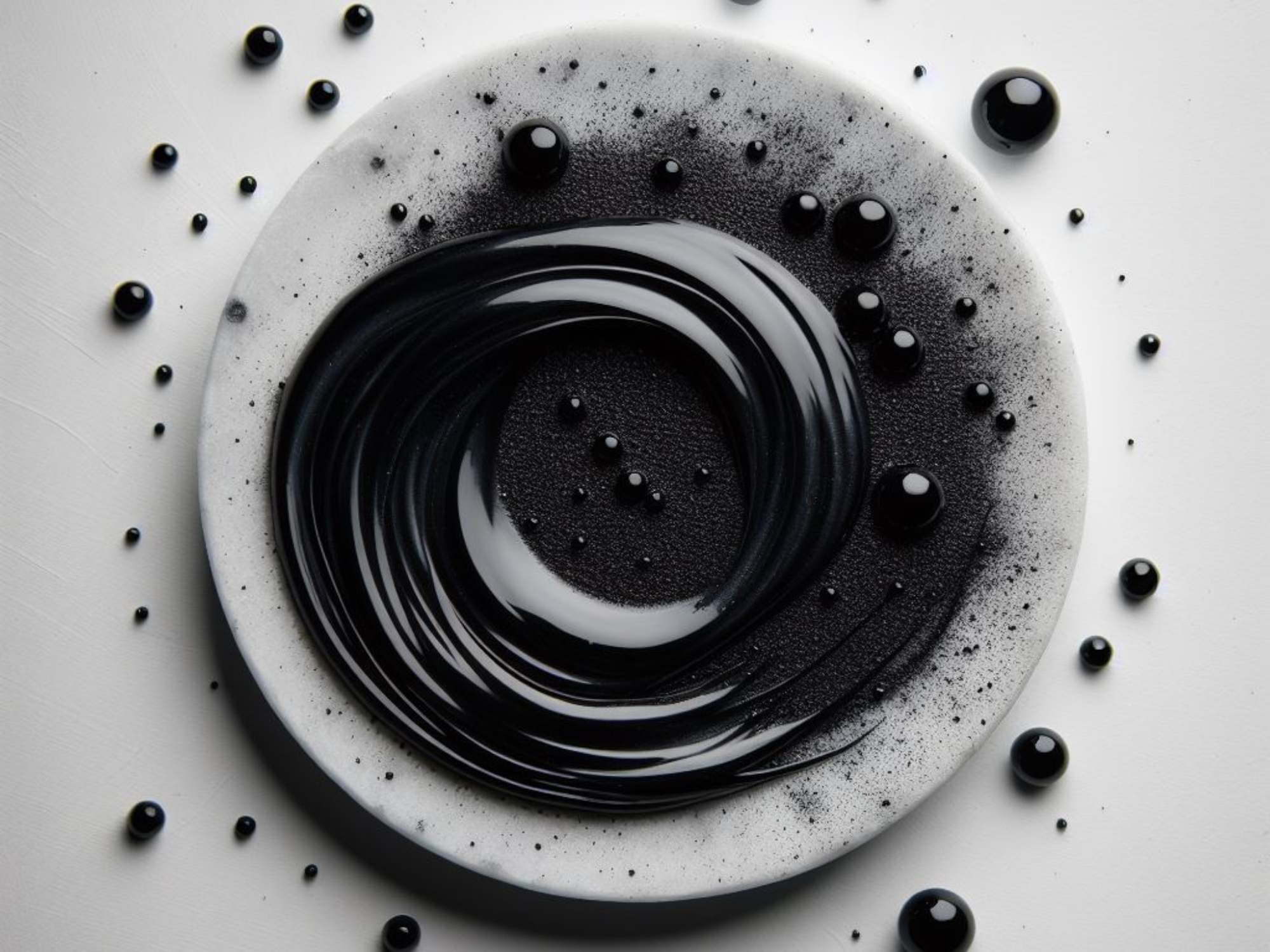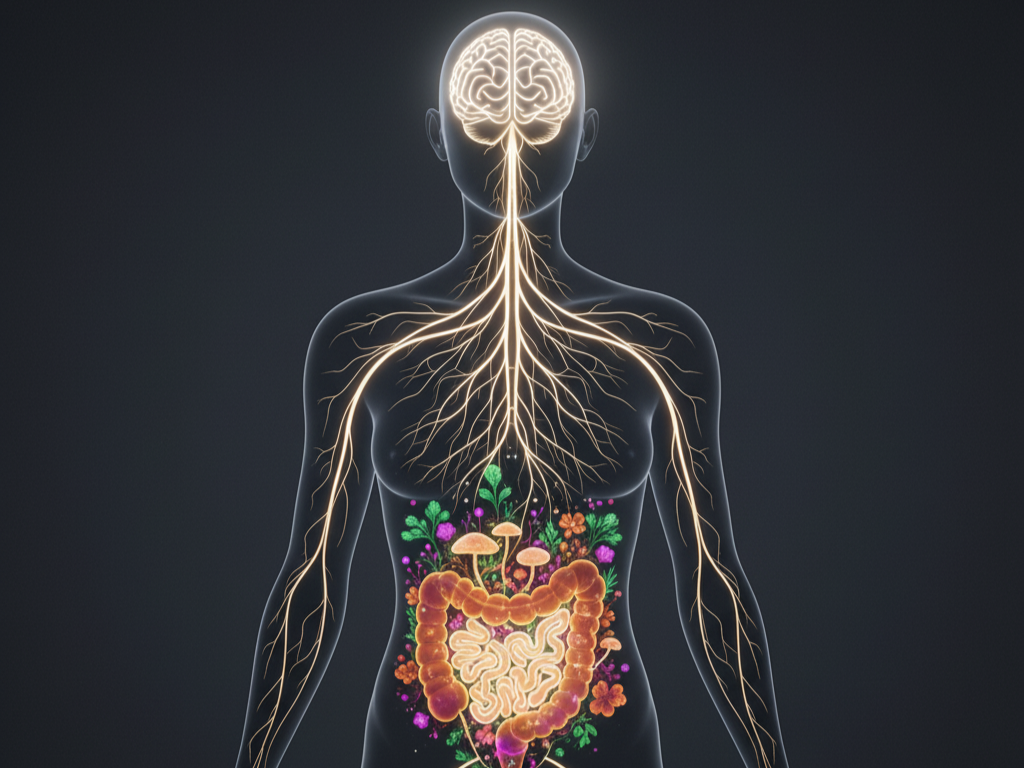Listen to the article as a podcast (beta)
KEY TAKEAWAYS
- The Comfort Paradox: Our modern, comfortable lives have made us physically and mentally weaker, increasing our anxiety in the face of minor challenges.
- Chronic vs. Hormetic Stress: It's crucial to distinguish between harmful, chronic psychological stress (like work anxiety) and beneficial, acute physical stress (like a cold shower), which builds resilience.
- Hormesis is the Solution: This biological principle explains how small, controlled doses of physical stress trigger adaptive responses that make our bodies and brains stronger.
- Practical Steps: You can practice hormesis through simple methods like cold showers, intense workouts, sauna sessions, and intermittent fasting to improve your overall health and longevity.
- 1. Not All Stress Is Created Equal: Chronic vs. Hormetic Stress
- 2. The Scientific Answer: What is Hormesis?
- 3. How Does It Actually Work? The Science of Adaptation
- 4. Your Toolkit for Building Resilience: Practical Hormetic Stressors
- 5. The Zenbioni Perspective: Training Your Stress Response
- 6. Frequently asked questions (FAQs)
We live in the most comfortable era in human history. Climate control keeps us at the perfect temperature. Food is available at the tap of a button. Entertainment is endless. By engineering away most forms of physical discomfort, we've inadvertently created a new problem.
This is the great paradox of modern life. By eliminating minor physical challenges, we have lost our natural resilience. Our minds and bodies, deprived of these ancient signals, react with panic to the smallest difficulties. But what if the key to regaining our mental and physical strength wasn't more comfort, but a deliberate dose of discomfort?
Not All Stress Is Created Equal: Chronic vs. Hormetic Stress
When we hear the word "stress," we typically think of its negative form: chronic psychological stress. This is the relentless pressure from deadlines, financial worries, and emotional turmoil. This type of stress is damaging, dysregulating our hormones (like cortisol) and leading to burnout.
But there is another kind of stress: acute physical stress, also known as hormetic stress. This is a short-lived, intense, and controlled physical challenge, like a blast of cold water or a tough set of squats. Instead of wearing you down, this type of stress acts as a powerful signal that awakens your body's innate defense and repair systems, ultimately making you stronger. Understanding this distinction is the first step to using stress as your ally, not your enemy.
The Scientific Answer: What is Hormesis?
The old saying, "What doesn't kill you makes you stronger," is more than just a motivational quote; it's a fundamental biological principle called Hormesis. As thinker Nassim Nicholas Taleb conceptualized, some things benefit from shocks; they thrive and grow when exposed to volatility. He calls this property "Antifragile." Hormesis is the biological mechanism behind this phenomenon.
In the words of Harvard's leading longevity researcher, Dr. David Sinclair, hormesis activates our "longevity genes." These are ancient survival circuits that, when switched on by a brief challenge, work to protect the body, repair cellular damage, and enhance overall function. It’s not about avoiding stress, but about using it strategically as a tool for growth.
How Does It Actually Work? The Science of Adaptation
When you expose your body to a mild, short-term stressor, you create a brief disturbance in its balance (homeostasis). This sends a powerful signal to your cells to switch into defense mode. The result isn't just a return to baseline; it's an overcompensation. Your body doesn't just repair; it rebuilds itself to be stronger than before.

This happens through several key pathways:
- Activation of Antioxidant Defenses: The body increases its production of powerful antioxidant enzymes that protect cells from damage.
- Mitochondrial Biogenesis: Hormetic stress signals your body to create new, more efficient mitochondria—the powerhouses of your cells. This is known as mitohormeisis.
- Release of Growth Factors: Stressors like exercise trigger the release of Brain-Derived Neurotrophic Factor (BDNF), which is like fertilizer for your brain cells, promoting growth and new connections.
Your Toolkit for Building Resilience: Practical Hormetic Stressors

The best part about hormesis is that it's accessible to everyone. You can start today with these powerful, science-backed methods.
Cold Exposure
A cold shower or a dip in a cold plunge is a potent hormetic stressor. The initial shock activates the sympathetic nervous system, leading to a release of norepinephrine, which sharpens focus, elevates mood, and reduces inflammation.
Heat Exposure
Sitting in a sauna exposes your body to heat stress, which in turn activates "heat shock proteins" (HSPs). These proteins help repair damaged cells, improve cardiovascular health, and support detoxification pathways.
Intermittent Fasting
Going for extended periods without food (e.g., a 16:8 fasting window) places a mild metabolic stress on your body. This can enhance insulin sensitivity, reduce inflammation, and trigger a cellular cleanup process called autophagy.
Intense Exercise
Pushing your muscles to the point of fatigue during a workout creates microscopic tears in the muscle fibers. This is a classic hormetic stressor. The body's repair process doesn't just fix the tears; it rebuilds the muscles to be stronger and more resilient than before.
The Zenbioni Perspective: Training Your Stress Response
Think of hormesis as training for life. The chronic, low-grade psychological stress of modern life dysregulates our HPA axis. Hormetic stressors, on the other hand, are acute, short-lived, and give our body a clear challenge to overcome.
By practicing hormesis, you are essentially training your nervous system to become more adaptable. You teach it the difference between a real, short-term threat (like cold water) and a perceived, chronic one (like work anxiety). This makes you less reactive to daily stressors and more resilient in the face of true adversity.
Discomfort is not the enemy. It is the path to growth. By consciously stepping out of your comfort zone, you unlock a more robust, energetic, and resilient version of yourself.
How often should I practice hormetic stress?
Consistency is more important than intensity. Start with 2-3 sessions per week for things like intense exercise or sauna. A short, cold shower can even be done daily. Listen to your body and prioritize recovery.
Is it possible to do too much?
Absolutely. The key to hormesis is a small dose of stress. Too much intensity or frequency without adequate recovery can lead to chronic stress, burnout, and injury. The goal is to stimulate, not annihilate.
What is the easiest way to start?
Start with the "minimum effective dose." End your next shower with 30 seconds of cold water. Go for a brisk walk that elevates your heart rate. Try pushing your breakfast back by an hour. Small, consistent steps build the foundation for resilience.









